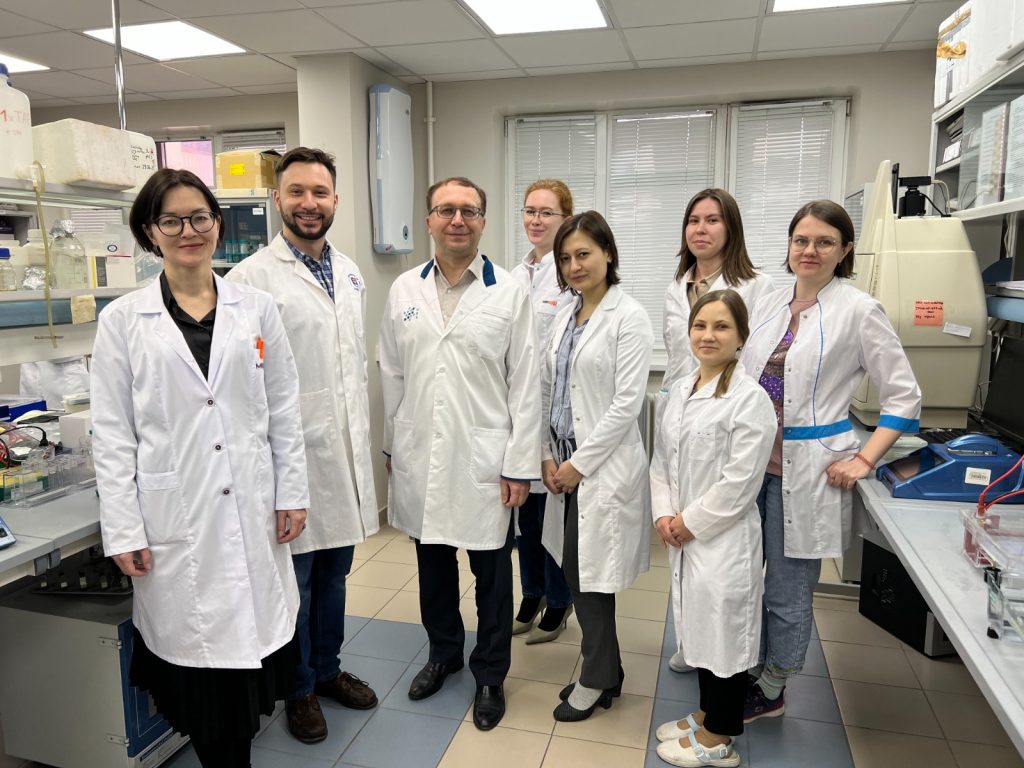KFU to launch production of pharmaceutical substances

Kazan Federal University and Izvarino Pharma within the framework of the North Project are launching a project unique for Russia, aimed at creating a full cycle of production of active pharmaceutical
According to official data, currently the share of domestically produced pharmaceutical substances in strategically important drugs is only about 6 percent. The problem is aggravated by the withdrawal of foreign manufacturers and rising prices for imported components. The new project of KFU and Izvarino Pharma is designed to eliminate dependence on foreign supplies.
“In general, the share of foreign substances is about 80 percent of the total volume on the Russian market. The reason for this situation until recently was the economic inexpediency of producing our own ingredients for medicines inside the country: it was much cheaper to bring them from abroad. Under the sanctions pressure from foreign countries, many foreign pharmaceutical companies have stopped investment activities in our country,” Dmitry Pashin, Vice-Rector for Digital Transformation and Innovation says. “After 2022, almost all European and American manufacturers left the Russian market. This situation was certainly taken advantage of by companies in India and China, which raised prices for pharmaceutical substances, thus making it unprofitable to produce medicines based on them in the Russian Federation.”
About 4,000 square meters of modern laboratories, clean rooms and low-tonnage equipment have been prepared for the project implementation. Production will start with 9 pharmaceutical substances used in transplant surgery and oncology. The first products will reach the market as early as 2025. Despite the small volumes – up to 200 kg per year – these substances are high-tech products, the cost of one kilogram of which can reach 10 million rubles.
“The project is organized in such a way that the intellectual part and development of pharmaceutical substances are carried out by scientists of Kazan Federal University, while financial support and equipment is provided by Izvarino Pharma. This is a unique example of synergy between science and business aimed at achieving national goals in drug safety,” comments Emil Bulatov, Head of the Industrial Biopharmaceutics Research Laboratory at the Institute of Fundamental Medicine and Biology. “It is important to note that the new production site will become not only a production center, but also a base for training students and postgraduates, as well as a platform for research work on the development of new drugs.”
The project goes beyond a local initiative, solving problems of national importance. It aims to create a competitive line of pharmaceutical products capable of replacing imported analogs.
“In the list of vital and essential drugs approved by the Russian government, there are about 800 items. However, only half of them can be produced by domestic enterprises on a full cycle, including the production of active pharmaceutical substances, which make up 70-80 percent of the composition of any drug. The rest are auxiliary components, such as casing and additives,” states Vice-Rector Pashin.
Izvarino Pharma has several production sites, each of which contributes to the production of high-tech drugs and implementation of the import substitution program. The company’s head office is located in Moscow, and there is a site of Nanopharma Development in Kazan, specializing in the production of drugs for transplants, oncology, and HIV treatment.
Cooperation between Izvarino Pharma and Kazan Federal University has a long history. Dmitry Pashin, and Albert Rizvanov, Head of the Center of Excellence for Personalized Medicine made a significant contribution to the successful partnership.
“Our goal is to combine the scientific potential of Kazan Federal University and the business experience of Izvarino Pharma to create a production of active pharmaceutical substances capable of providing a full cycle of production of vital and essential drugs. This will be an important step towards drug independence of Russia,” emphasizes the Vice-Rector.
In addition, it is worth noting that KFU and Izvarino Pharma have also been conducting research in genetically engineered technologies since 2022, including the development of CAR-T therapy, which responds to the growing demand in the treatment of cancer diseases resistant to traditional methods.
“In Russia and CIS countries, clinical application of CAR-T cell-based technologies started only a few years ago, but the demand for them is already high, as many patients for whom traditional therapies such as chemotherapy and radiotherapy have proved ineffective may be candidates for this therapy,” concludes Emil Bulatov.

